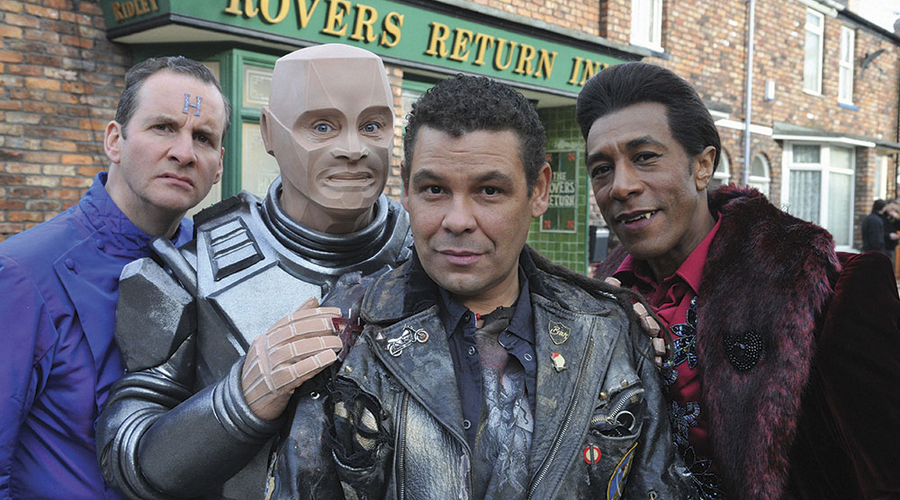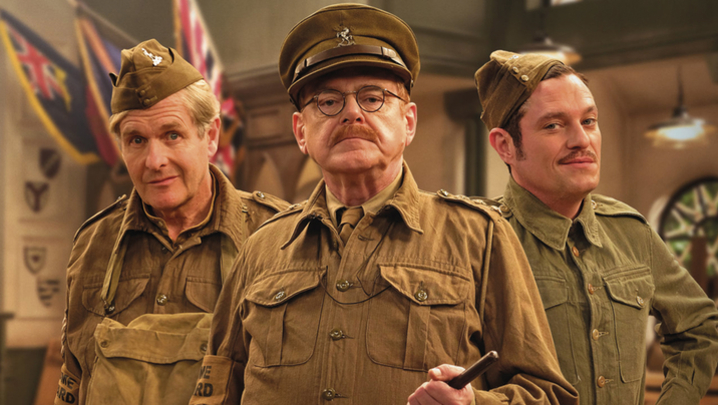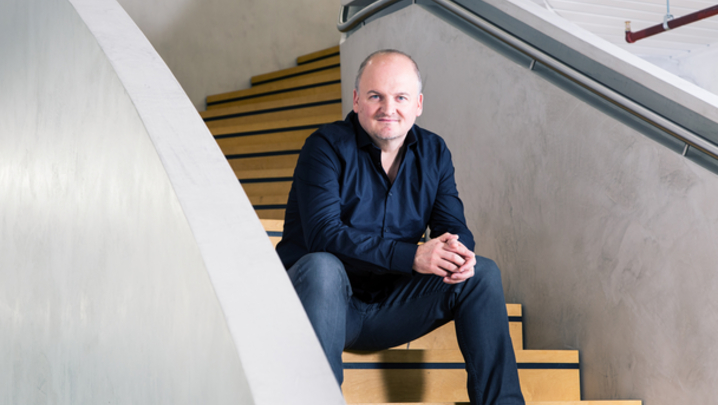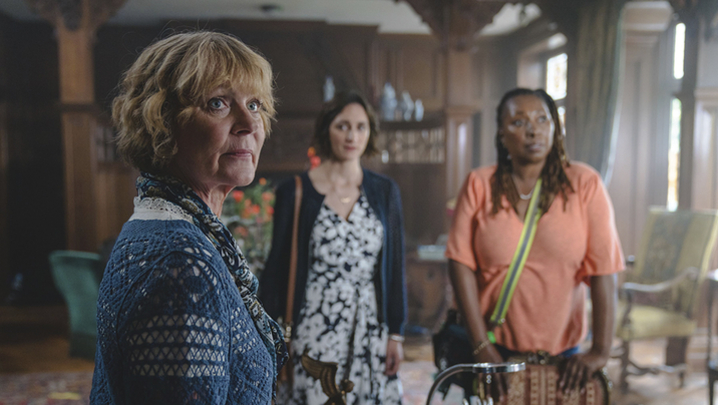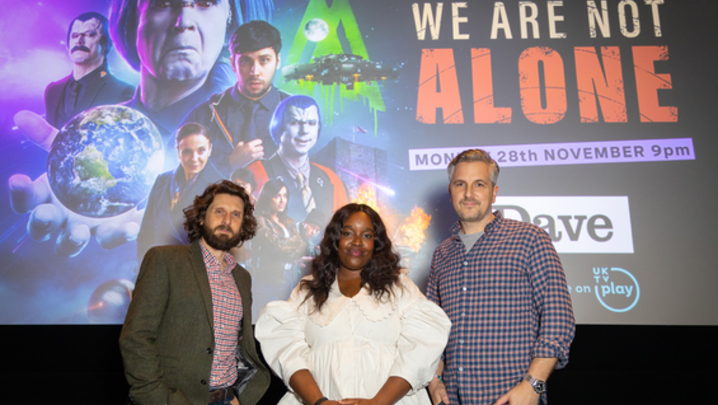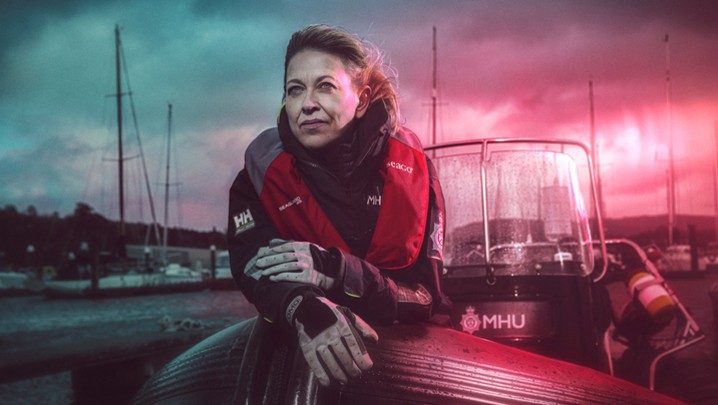Steve North is responsible for the editorial direction and programming of UKTV’s channels
In his 20-plus years at the broadcaster, he has led the rebrand of UKTV’s comedy channel to Dave, brought the huge hit Taskmaster to our screens and revived a childhood favourite, Red Dwarf. He also manages the combined BBC Studios and UKTV global compliance team.
What does the job involve?
Setting the editorial direction of the business so we can create distinctive, original, creative, enjoyable channels at UKTV that viewers want to watch.
Do you use gut instinct or data?
Research plays an enormous part – you can’t underplay its importance. When you go in to see a board of directors and tell them you want to rename a channel Dave, if you haven’t got a lot of research to back up why that’s a good idea, it’s not going to happen. We spoke to more than 2,000 people to make sure we were not making a huge error.
Which departments do you work with closely?
I work with our commissioning and acquisitions teams to decide which shows to make and buy; marketing and PR to publicise those shows; the operations team and platform providers to get our channels to air; finance to ensure we have the money to pay for the programmes; and legal to make sure everything’s above board.
What skills do you need?
An analytical brain so you can understand figures and follow trends; a passion for TV; and a willingness to learn, because TV is changing at such an obscene rate.
You also need the composure to take a step back, particularly when making editorial decisions about what we should or shouldn’t put on air – time to think and digest, and assess potential pitfalls is vital. And you need to listen to and trust people – I may be responsible for the channels’ editorial direction, but I don’t make the programmes.
You’ve worked as a scheduler – is that the normal route into programming?
It’s quite a well-worn route. Scheduling puts you at the heart of the business – you have to work with every department and it helps to develop your analytical skills. You can also come from a commissioning or acquisitions background, where you’ve spent a lot of time working with content. Marketing, too, because you really need to understand what audiences want.
You also work in content compliance – what does that involve?
Ensuring our programmes adhere to Ofcom regulations and to BBC standards, practices and producer guidelines. There’s a lot of content: the UKTV channels, UKTV Play catch-up and the global services of BBC Studios.
We also need to make sure that the language and any violence or drug use in the shows is suitable for the time of day they’re going out.
On top of that, although content may be compliant with all the regulations in any given country, there are also editorial considerations. Is it right to air a particular programme in the wake of a natural disaster, terrorist activity or the death of a famous person?
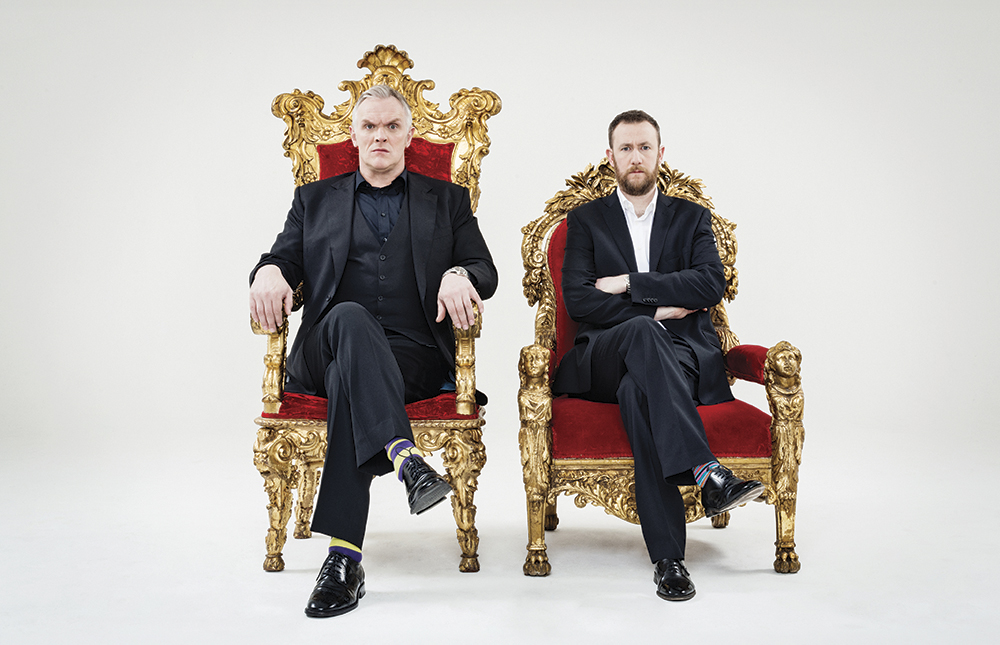
Do the two roles fit well together?
Other chief programming officers have compliance as part of their job. The two make us responsible for every element of the content going on screen, so they fit together well.
What shows are you most proud of bringing to UKTV?
I was a big Red Dwarf fan as a child, so making fresh episodes of that for Dave was incredible. Taskmaster was a huge success for us and now for Channel 4 – a brilliant show, so creative, so different.
We also brought back The Comic Strip to Gold; working with British comedy royalty Ade Edmondson, Rik Mayall, Dawn French and Jennifer Saunders, was incredible.
More recently, we’ve been making great drama for Alibi, such as Traces and Annika, and fantastic shows such as Bangers and Cash on Yesterday and Emma Willis: Delivering Babies on W.
Do you have to be more innovative as a broadcaster?
We’re not the biggest player, so we have to find gaps in the market and ways of appealing to audiences that aren’t straight out of the mainstream.
It’s really difficult for us to do what the big channels do better than them, because they have more money; we have to be creative and take risks. We have a new show coming up on Dave this year called Battle in the Box, a comedy entertainment show hosted by Jimmy Carr that feels fresh and out there.
What do you bring to work with you?
Laptop, notebook, the reading glasses I now need and a reusable coffee cup.
What are the best and worst parts of the job?
The best is launching new channels; the worst is the few seconds when you’ve clicked on the overnights to see if a show has worked and you’re waiting for the numbers.
What advice would you give to someone wanting to do your job?
Gain as much experience as you can. Particularly when you’re starting out, you don’t need to stay in every role for five years. Try to work in drama, comedy and factual because the audiences are different and, in my job, you need to be able to understand what audiences want. TV is an incredibly creative industry; it’s a real privilege – make the most of it and enjoy it. You’ve also got to work hard because it is so competitive: a lot of people want your job and you’ve got to work hard to prove yourself.
Has your job changed over the past two decades?
Totally. When I was starting out, there were just a few linear channels and a bit of pay-TV. Getting content to people is much more complicated now: you have YouTube and TikTok; streamers such as Netflix and Amazon Prime; and the broadcaster VoD players; as well as many more channels. Audience tastes are constantly changing, too.
Are there old shows you can’t now put on air?
Yes, sometimes either lines need to be edited out or a programme can’t be transmitted at all. But there is a balance to be found between not offending an audience and censorship.
I don’t see myself as a censor of content and I’m not here to pretend that the past hasn’t happened, but an audience does need context. We spend a lot of time considering what is and isn’t suitable to play – should we transmit a show with a warning or after the watershed or not at all?
Is there any type of channel you would love to launch?
A sports channel, which would allow me to travel the world following golf tournaments, football, rugby and cricket.
Steve North was interviewed by Matthew Bell.

